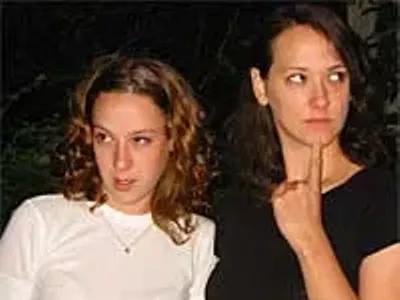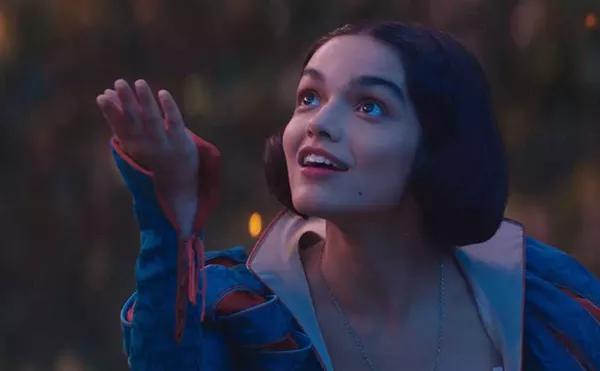My 56-year-old dad plays hockey once a week, at odd hours, in a four-team league with other men his age. They are amateurs, of course, and always have been. Every rink I know of offers such leagues to adults from their 20s to their 60s. Collectively, these are called “the beer leagues.” By his league’s standards, my dad skates well, scores frequently and has an OK wrist shot.
When I have watched him play, and when his wrist shot has fluttered toward the goal with a great deal less speed and accuracy than even a fourth-string Red Wing’s, I have not been embarrassed for him. I have not wished to hurry out of the rink, eyes to the floor, unnoticed.
Yet, if my dad were an amateur poet rather than an amateur hockey player, and he were attempting an ode rather than a shot from the left wing, I suspect that the other spectators and I would all have been a little embarrassed.
Recently I was reminded of the amateur-and-fine-with-it attitude that exists in the beer leagues and other recreational sports. I read an article about a 79-year-old woman in New England who simultaneously writes poetry and runs a doughnut shop. The elderly woman apparently never received any formal training in poetry (the article mentions no MFAs or workshops). Her book is self-published (very damning, indeed). And, her collection has a vapid title (Tales from a New England Neighborhood). My every instinct told me that she was a bad poet. The article did not provide any verse from which to confirm my hunch, but I didn’t think I needed it.
I confess, I don’t have an MFA either, or even a bachelor’s in literature (I majored in journalism). However, a decade ago I did enroll in two poetry-writing classes taught by Michigan State University’s poet-in-residence, Diane Wakoski. During those two semesters, and then for a few years after that, I would draft poems in a notebook, then type them up. Beyond that, I went to the library and borrowed volumes of poetry by, among others, Sharon Olds and Gary Soto, Donald Hall and Philip Levine, Galway Kinnell and, of course, Diane Wakoski herself. These were living Americans — big names in their very small world — who published in literary magazines that I, too, could submit to.
Back then I was convinced that poetry was something that had to be taken seriously. I avoided open-mics at coffee shops and bookstores because they were too democratic. Too open to showcasing casual, uncommitted, lousy poets. Tolerating bad poetry for 90 minutes just so I could read a poem or two of my own was not worth it.
I now will be the first to say that my poetry also was bad — but bad in a different way. My work was always frustrated by a fear of badness, and so I wrote stiffly, more concerned with not being bad than with being good, free or unique. Not a winning approach, I assure you.
I viewed famous self-made barroom poets (e.g., Charles Bukowski) with suspicion, and those who worshipped Bukowski and his ilk I treated with even greater skepticism. I would have contended that, say, the esoteric John Ashbery was a more appropriate model than that drunken mailman Bukowski. (Never mind that I could never make it through Ashbery’s poems myself — and I’ve finished Ulysses.)
There was a time when I looked into MFA programs, read interviews with poets about their craft, and revised and submitted the same old poems. Occasionally I worked on a new poem, though as the distance between the Wakoski classes and the present became a matter of years, I did this less and less. At no specific moment in time did I give up, but gradually that is what happened. What I can tell you is that I stopped hoping to be a poet and stopped writing poetry at the same time.
I had concluded that, if you couldn’t write poetry well enough to publish in Ploughshares, or compose dazzlingly enough to get a chapbook from a university press, then don’t bother at all. Without the prospect of becoming the next Allen Ginsberg, what was the point? Even before giving up, I had been applying this same standard for years to all those open-mic poets. Now I had turned it upon myself.
A few years went by. I got older, and, in so many fields, I learned to accept and enjoy my rank as eternal amateur: guitarist, soccer and hockey player, movie connoisseur, traveler and chess player. Finally I began to ask myself, “Why not poetry? Why not literature? If playing the guitar poorly gives me no shame, and watching a fellow bad chess player flub an endgame causes me no discomfort, then why should poetry be different?”
Long before I read the article about the doughnut-making poet and her self-published book, I knew my rule that “only the best should bother” was too harsh. But reading that article proved to be a sort of final confirmation. When I finished the article about the doughnut lady, I did not think, “God, why does she even try?” — which is what I would have thought five years ago. Instead I thought, “Good for her.” Now I say, “I’m glad writing makes her happy.” If I ever took a seat at her counter and ordered a coffee and a doughnut, and if she slid a poem to me as I was stirring cream into my coffee, I could read the poem with pleasure and offer a sincere word of praise.
It seems that for many people, particularly those who have ever dabbled with, ahem, “serious” poetry, we expect more from people’s writing than we do their performances in other endeavors. We cringe when those sing-songy rhymes are read at weddings, and blush at the plethora of clichés. We wish to be spared the awkward compliments that we are, nevertheless, forced to muster.
But, when we decide that our acquaintances’ poetry is “bad,” by what criteria are we judging? Are we expecting these poems to be worthy of anthologies, or at least The New Yorker? Depending on one’s tastes and artistic background, some are guilty of this, to a greater or lesser extent, with other art forms. Local theater and continuing education painting classes come to mind.
Some of the blame for the awkwardness lies with the amateur poets ourselves. (As a former amateur poet, I include myself in the blame-deserving group.) We only write once a week or twice a month, and read poetry only sporadically and with much less necessity than the pros. And yet, deep down, we hold out hope that our work is truly good. Not good as in “not bad for an amateur,” but good as in “undiscovered genius.” The amateurs in my dad’s beer league do not operate under these delusions. Also, amateur poetry makes us writhe more than amateur hockey because art comes from someplace more personal. We view art as inseparable from the self, so when we hear a trite poem, we see it as an unveiling of a trite self. Unlike in the pros, all bad poetry is confessional, made the more uncomfortable because the amateur poet does not realize he is confessing to triteness.
Making this conclusion, however, is a mistake. We members of the squirming audience forget that there is more to a poem than inspiration and soul-bearing. Poetry is, in addition to an art, a craft. Poets learn tricks, and they get better with practice. Amateur poetry that fails to meet professional standards indicates a lack of craft, and does not indicate a deficit of soul. Whether we blame the amateur artists themselves or the squirming members of their audience, the fact is that, outside of poetry and a few other arts, we are fine with the nonprofessional work produced by nonprofessionals.
To use an example beyond the world of sports: Every homeowner I know takes at least a mild interest in gardening. Many of them are not very good at it — neither at conceiving a design nor at the actual task of making things grow — but it makes them happy and their efforts are at least better than patches of weeds.
I am proposing that we lower our expectations of amateur poetry, along with all amateur art. At the next wedding, when the toast turns into verse, just relax. Grade amateur poets on a lower scale, as we do adult amateur athletes and amateur gardeners. Forgive the once-a-month poets their lack of degrees, their ignorance of who Charles Simic and Adrienne Rich are, and even their banal observations. Amateur poetry should be as free from expectation and awkwardness as the beer leagues are.
These days, when I write at all, I more likely will turn to prose than verse. But if I ever again feel touched by the muse and am compelled to break my deepest thoughts into lines, I’m sure I will toil, and happily so, in poetry’s doughnut leagues.
Rob Keast teaches high school English in the Downriver area. Send comments to [email protected]





